If you want to grow more copies of your favorite plants, then grow the ones that produce pups quickly after planting!
Most plants take time to grow new offshoots, but not these ones. They’re known for producing pups faster, some even in the first year of the planting, making them great picks for quick propagation and fuller containers.
Plants That Produce Pups Quickly After Planting
1. Spider Plant
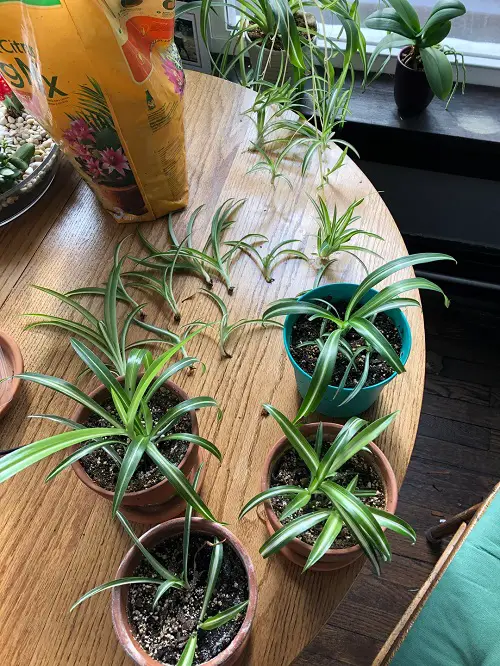
Botanical Name: Chlorophytum comosum
Did you know a spider plant can produce pups as quickly as 5 months after being potted into a new container? Of course, you’ll need to give it the right care, and it has to be mature enough.
You can easily spot these pups at the tip of long stems called stolons or runners. And if you want to multiply yours, simply snip off the pups once they have small roots and place them in water or moist soil. They’ll start growing into full plants quickly.
If you feel your plant is mature and still isn’t producing pups, here’s what the problem might be and how to take care of it!
2. Aloe Vera
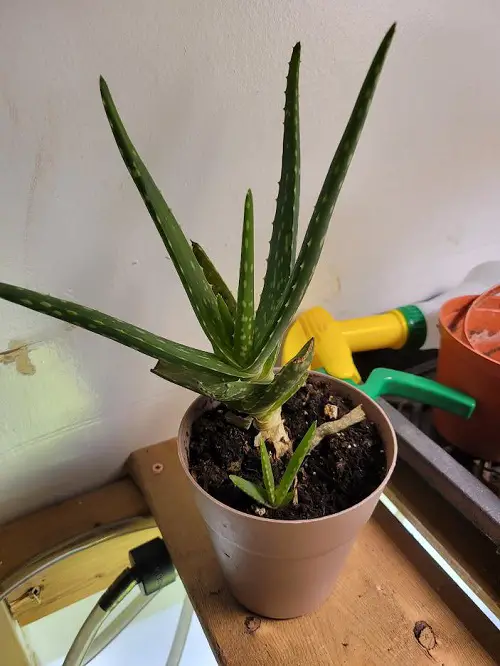
Botanical Name: Aloe barbadensis miller
Want more aloe in your garden? Just wait a few weeks. This succulent produces pups from its base (not the stem or leaf), usually when it’s healthy and a bit root-bound. Here are more such masterful tips to force your succulents into giving pups.
These pups look like mini versions of the main plant with thick, spiky leaves. They also tend to overgrow quickly, so you’ll have to take care of them right if you want yours to survive!
Pro Tip: Aloe vera var. chinensis tends to produce more pups at a younger age than barbadensis. So if your goal is filling a space with aloe, you know which variety to choose.
3. Dwarf Banana
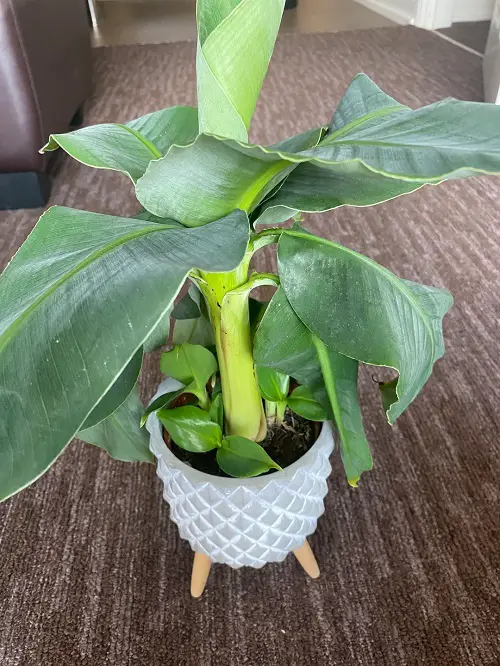
Botanical Name: Musa acuminata ‘Dwarf Cavendish’
Banana plants send out pups (also called suckers) from underground rhizomes 6-12 months after planting, if given enough sun and water. These grow at the base of the plant and are strong and upright.
Once the pup is about 1 foot tall, you can separate it and replant it. Remember, the main banana plant dies after fruiting, but new pups will take its place.
4. Zebra Haworthia
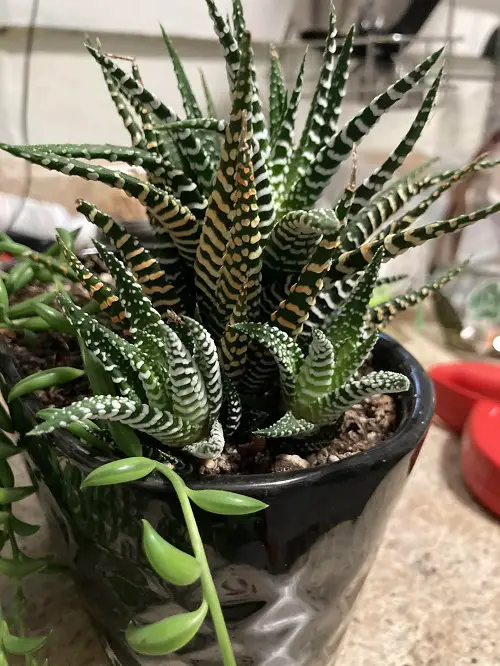
Botanical Name: Haworthiopsis attenuata
Zebra haworthia is a compact succulent characterized by its distinctive striped leaves. It grows slowly, but once mature, it can produce pups 2-3 times a year. However, it takes about 3-5 years to reach maturity.
You can gently twist or cut them off when they get a bit larger and plant them in well-draining soil. It’s a great low-maintenance plant for beginners and perfect for small indoor spaces.
5. Chinese Money Plant
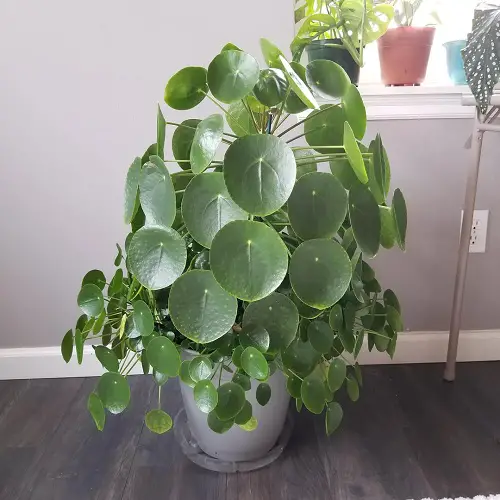
Botanical Name: Pilea peperomioides
This popular plant can grow pups in just a few months if it’s healthy and actively growing, especially in spring or early summer. The pups grow from the soil near the main stem.
You can leave them in the pot or separate them and grow them in water or potting medium until they form roots, then move them to soil. The best time to propagate the Chinese money plant is in spring or summer, when the plant is actively growing.
6. Pineapple
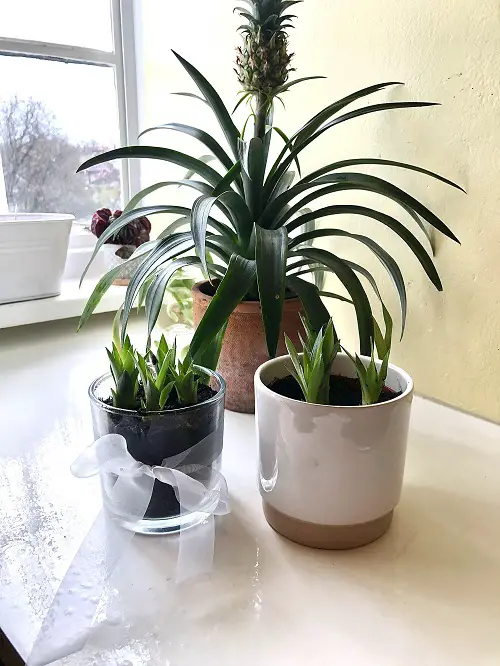
Botanical Name: Ananas comosus
Pineapple plants grow pups (called slips or suckers) after or during the fruiting stage. These pups grow just below the fruit and look like small green crowns. Twist them off gently and plant them in the soil. They grow slowly and will eventually form new pineapple plants.
They’re great for tropical climates and give you pups within 14-16 months, but if the atmosphere is colder, they take a bit longer. The best part is, there are tons of ways to grow more of these!
Fun Fact: Plants grown from pups or slips usually fruit faster (potentially within 12-18 months) than those grown from the crown (which can take 2-3 years).
7. Snake Plant
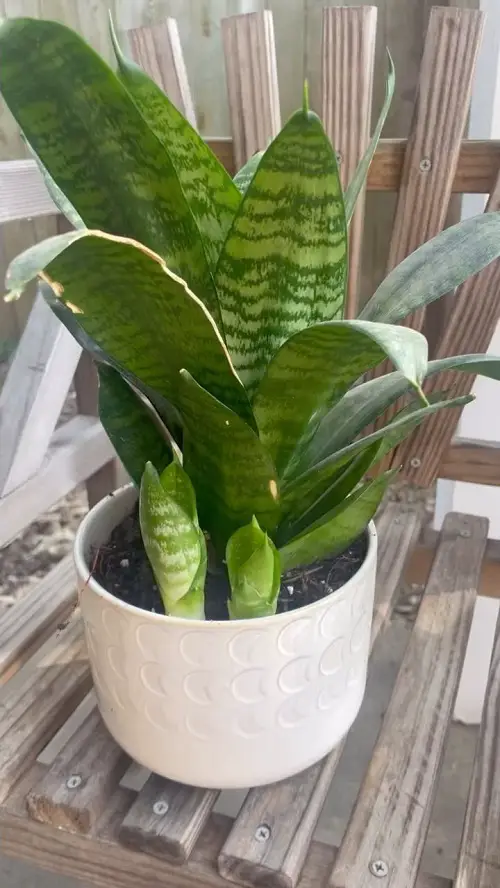
Botanical Name: Sansevieria trifasciata
Snake plants can produce pups within 4-5 months if the new plant is a division from mature rhizomes. For leaf cuttings, this process takes a lot longer.
These plants are very hardy, so they’re a great choice for beginners who want to try propagation. They’re slow growers, but if you think your snake plant hasn’t been producing as many pups as it should, here’s how to take care of the issue.
Why don’t you try adding a few of these to your plant collection and enjoy the satisfaction multiplying them into more! Do let us know how it goes for you in the comments below.


